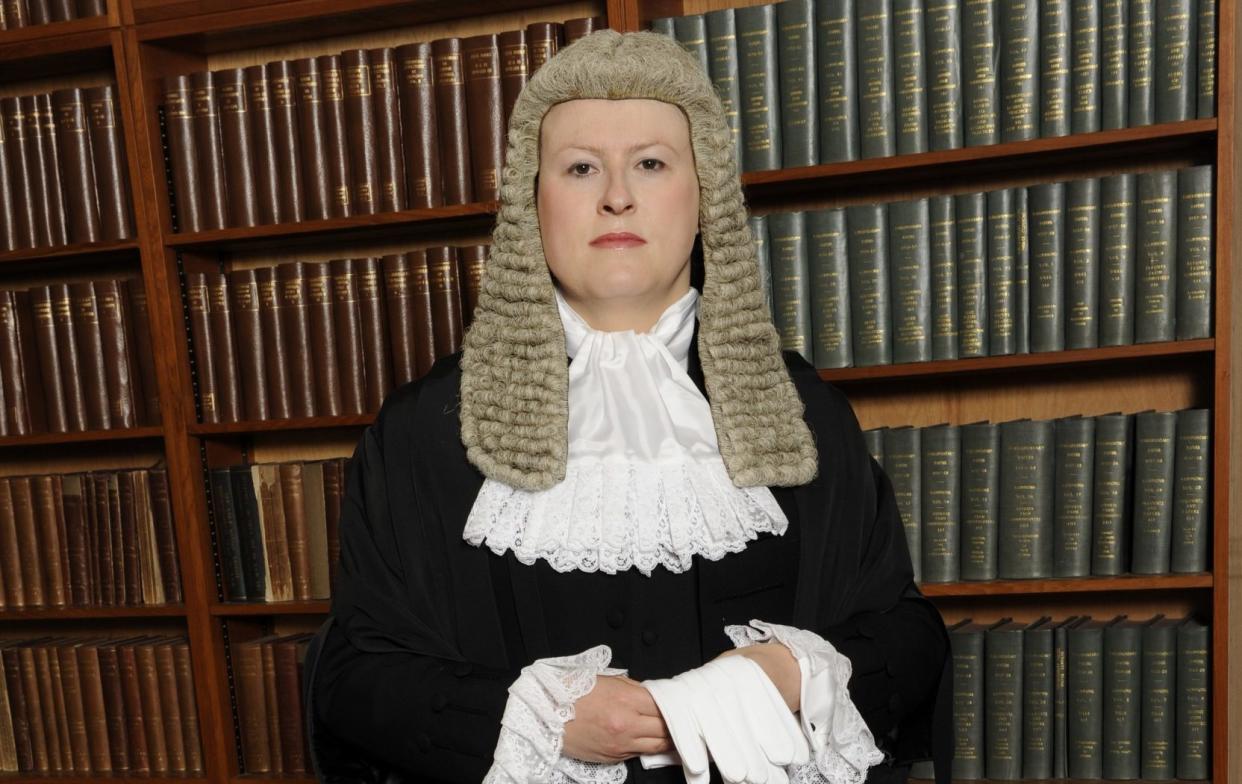UK’s only trans judge quits 'as role has become politicised'

Britain’s only transgender judge has quit after claiming she can no longer do the job without politicising the judiciary.
Master Victoria McCloud said her publicly known status as someone who transitioned from a man to a woman meant she was “now political every time I choose where to pee”.
The 54-year-old transitioned in the 1990s and became the UK’s first practising trans barrister and judge. She was also the youngest person to become a King’s Bench Master of the High Court, aged 40 in 2010.
But eight years ago, her previously private trans identity became public knowledge after being published by a national newspaper, which led to her becoming a prominent advocate for diversity in the judiciary.
In a resignation letter, parts of which were leaked to The Times, she said this “came at a cost because I became a public figure and a target” and her role “came with the additional responsibility which fell upon me as the first judge from the ‘trans’ community in the UK and globally”.
‘Personal dignity is at stake’
She claims that “it has been open season on me and others” with the rise of gender-critical campaigners who stress that biological sex cannot be changed. She said this meant “the dignity of the court as well as personal dignity is at stake”.
“Rosa Parks’ choice of seat was political because of the colour of her skin,” Ms McCloud said in her letter. She added: “More prosaically, for me, I am now political every time I choose where to pee. Less prosaically, the judiciary, by continuing to let me be a judge, is now at risk of being political.”
Ms McCloud, a University of Oxford graduate, contributed to the judiciary’s Equal Treatment Benchbook, a set of guidelines for judges which includes a section on “acceptable terminology” that shows respect for a person’s gender identity, including using appropriate titles such as Mr and Ms, as well as personal pronouns. This practice has proven controversial in cases such as the male-born transgender rapist Isla Bryson, who was jailed for eight years in Scotland after committing attacks while still known as Adam Graham.
Ms McCloud, who will formally stand down in April, previously said a new crop of transgender judges “would be welcome” in campaigns to encourage diversity among lawyers for the international transgender day of visibility.
But she said she had become concerned “about the difficult position which has developed recently for a trans person, such as me, in public life, but especially as the only such judge”.
“I have reached the conclusion that in 2024 the national situation and present judicial framework is no longer such that it is possible, in a dignified way, to be both ‘trans’ and a salaried, fairly prominent judge in the UK,” she added.
‘One of the finest and fairest’
The judge has presided over various high-profile cases, including one involving a KGB double-agent and another involving Donald Trump. She also published a ruling saying that the “very public” process of changing your name by deed poll “needs close attention” to ensure that trans people are not being outed.
Ms McCloud led the successful legal battle over judges’ pension reforms that were introduced in 2015.
Nazir Afzal, a former chief crown prosecutor, said Ms McCloud’s resignation was “desperately sad” and that she was “one of the finest and fairest judges we have”.
Harminder Bains, a partner at Leigh Day who has appeared before Ms McCloud many times, said she had been “at the forefront of advancing the judiciary into the 21st century”.
The Telegraph has contacted the judiciary for comment on the resignation.

